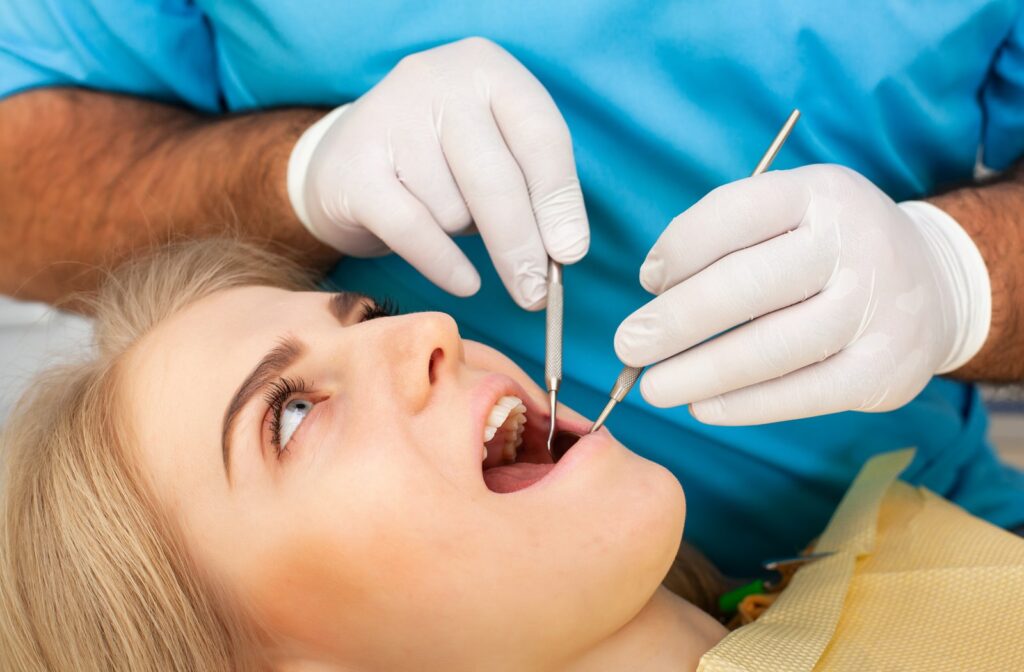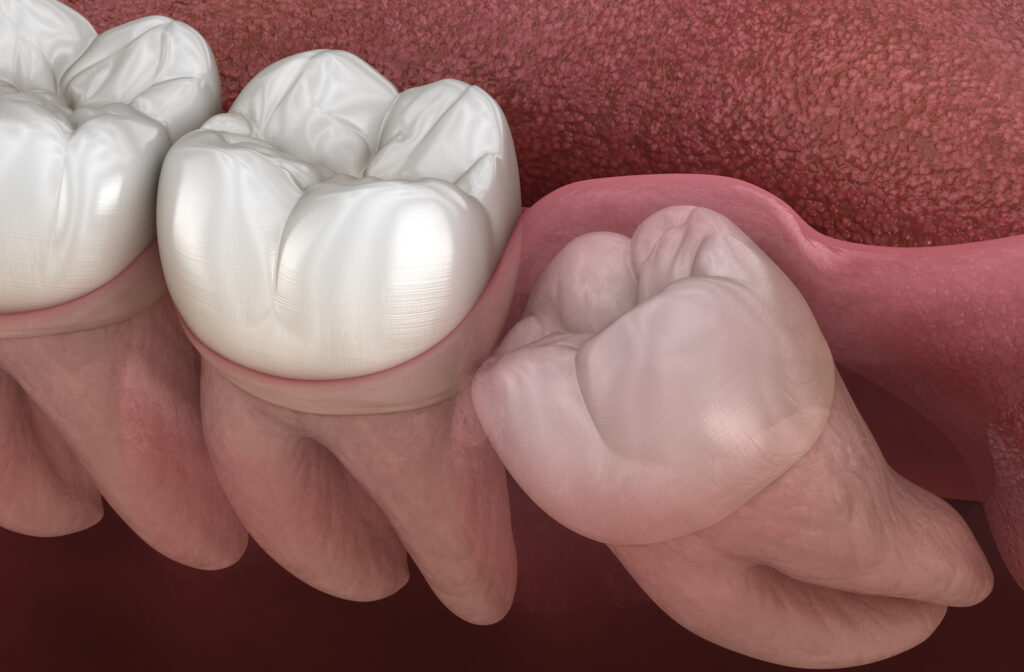One of the most common dental surgeries is wisdom teeth extraction. The dental issues caused by wisdom teeth affect almost everybody at some point in their lives, so it is important to your dental health to have your wisdom teeth addressed as soon as you or your dentist notice them emerging. At Arch Dental Centres Toronto, our professional team is equipped with the latest technology and effective procedures that will help you retain the integrity and functionality of your mouth — book an appointment with us to receive a consultation for wisdom teeth removal surgery.
When is it Necessary to Get Your Wisdom Teeth Removed?
Wisdom teeth are typically removed to address issues with discomfort, tooth decay, or for preventative reasons. These teeth usually begin to emerge around the ages of 17 and 25, and are the last permanent teeth that will appear in the mouth.
Whether or not your wisdom teeth will have to be removed depends on if they are causing problems in your mouth currently, or if they are likely to cause issues in the future. Some people never develop wisdom teeth — others may be able to avoid surgery due to their wisdom teeth causing no additional issues inside of their mouth. The most reliable way to tell if you will need your wisdom teeth removed is to receive a consultation from your dentist.
Asking yourself some preliminary questions about your wisdom teeth can help determine if you need removal surgery:
- Have your wisdom teeth caused any pain or damage to your jaw or nearby teeth? If not, is there an increased risk of that happening?
- Are your wisdom teeth preventing your other teeth from developing properly? Are you developing impacted wisdom teeth?
- Is there an increased risk that your wisdom teeth will interfere with other dental or jaw-related treatments that you have already planned to undertake?
- Could your wisdom teeth potentially replace the function of molars that are missing or badly damaged?

The Process of Wisdom Teeth Removal Surgery
At Arch Dental Centres Toronto, wisdom teeth extraction operations can either be performed under a local anaesthetic or a general anaesthetic. If you choose to use a local anaesthetic, it will be applied to the area before the tooth removal — if several (or all) of your wisdom teeth are being removed during a single procedure, a general anaesthetic may be used instead.
Preparing for Your Surgery Beforehand
Wisdom teeth removal surgery is typically performed as an outpatient procedure — this means that you will be able to go home from our office the same day of your surgery. Once you have booked your surgery, you will receive instructions from our staff on what to do during the weeks before your surgery as well as the day of your scheduled operation. It can help to ask yourself these questions:
- Do I need to avoid eating food and/or drinking fluids? For how long?
- Can I take prescription medications before my surgery? If yes, then how soon before my surgery can I take them?
- Should I avoid any nonprescription drugs before my surgery?
- Will I need to make arrangements for someone to drive me to and from my procedure?
- How early do I need to arrive before my appointment?
During The Operation
Once the operation begins, your dentist or oral surgeon will:
- Make an incision in your gum tissue to allow access to the current tooth being removed and the bone nearby it
- Remove any bone that is blocking access to the tooth root
- Divide the tooth into sections or pieces if it will make it easier to remove
- Remove the tooth
- Clean the area around the removed tooth of any debris
- Stitch the wound closed to promote healing (in some cases this isn’t necessary)
- Place gauze over the extraction site to stop any bleeding and help a blood clot form
This process will be repeated for each wisdom tooth being extracted.
What to Expect After Your Surgery
If you receive general anesthesia, you will be taken to a separate room to recover after the conclusion of your operation. If you have local anesthesia, you will be able to recover quickly and can stay in your dental chair. After you have recovered, you can go home the same day of your surgery.
Once you begin the healing process after your surgery, follow your dentist’s instructions on:
- Beverages — Drink water after the surgery as directed by your dentist or surgeon. Don’t drink with a straw for at least one week; suction can cause the blood clot to dislodge from the socket.
- Food — Only eat soft foods for the first 24 hours. Start eating semi soft foods when you can tolerate them and avoid eating any hard, chewy, hot, or spicy foods.
- Cleaning your mouth — Don’t brush your teeth, rinse your mouth, or use mouthwash the same day of your surgery; you can usually resume brushing your teeth after 24 hours. Rinse your mouth with warm saltwater or solution provided by your dentist, and try to avoid spitting during the first few days after your surgery.
- Bleeding — Some bleeding may occur during the first day after wisdom tooth removal. Make sure you replace gauze as directed by your dentist or surgeon.
- Pain management — You may be able to manage lingering pain with an over-the-counter pain reliever or a prescription pain medication from your dentist or surgeon. Cold packs can also relieve some pain. Any swelling will usually improve in two or three days, but bruising may take longer to resolve.
- Stitches — if you have stitches that need to be removed, schedule an appointment with your dentist.


